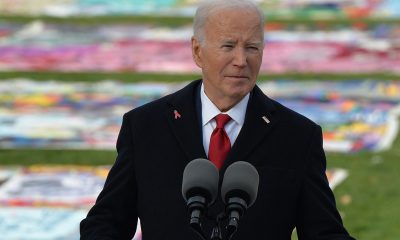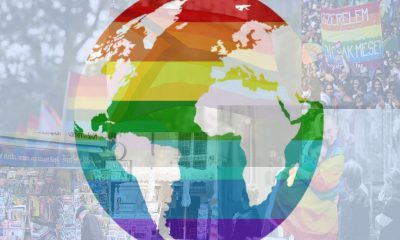European Union
Lithuanian filmmaker uses work to advance LGBTQ+, intersex rights
Romas Zabarauskas came out in 2011 at Vilnius Film Festival

WASHINGTON — A gay filmmaker from Lithuania who describes himself as the “Baltic enfant terrible” uses his work to promote LGBTQ+ and intersex rights.
Romas Zabarauskas, 32, grew up in Vilnius, the Lithuanian capital.
He told the Washington Blade during an interview in D.C. in August that he initially wanted to be an actor, but soon realized he wanted to direct films.
Zabarauskas said the classic films — including John Waters’ “Pink Flamingos” and Douglas Sirk’s “All that Heaven Allows” —he watched in a local library exposed him to “the diversity of the world.” He also said Todd Haynes, Derek Jarman, Gregg Araki and other LGBTQ+ and intersex filmmakers “inspired” him.
“I enjoyed the diversity of the world,” he said. “It wasn’t just in terms of sexuality and gender identity, but also in terms of diversity of styles and ways of expression. It was amazing because it made me feel accepted.”
“It all sounds kind of trivial, but it’s true,” added Zabarauskas. “Cinema captures stories from all across the world in such different ways. That’s kind of amazing. I was definitely inspired by that.”
Zabarauskas studied at Paris 8 Vincennes Saint-Denis University from 2009-2011 and at City College of New York: Hunter College from 2011-2012.
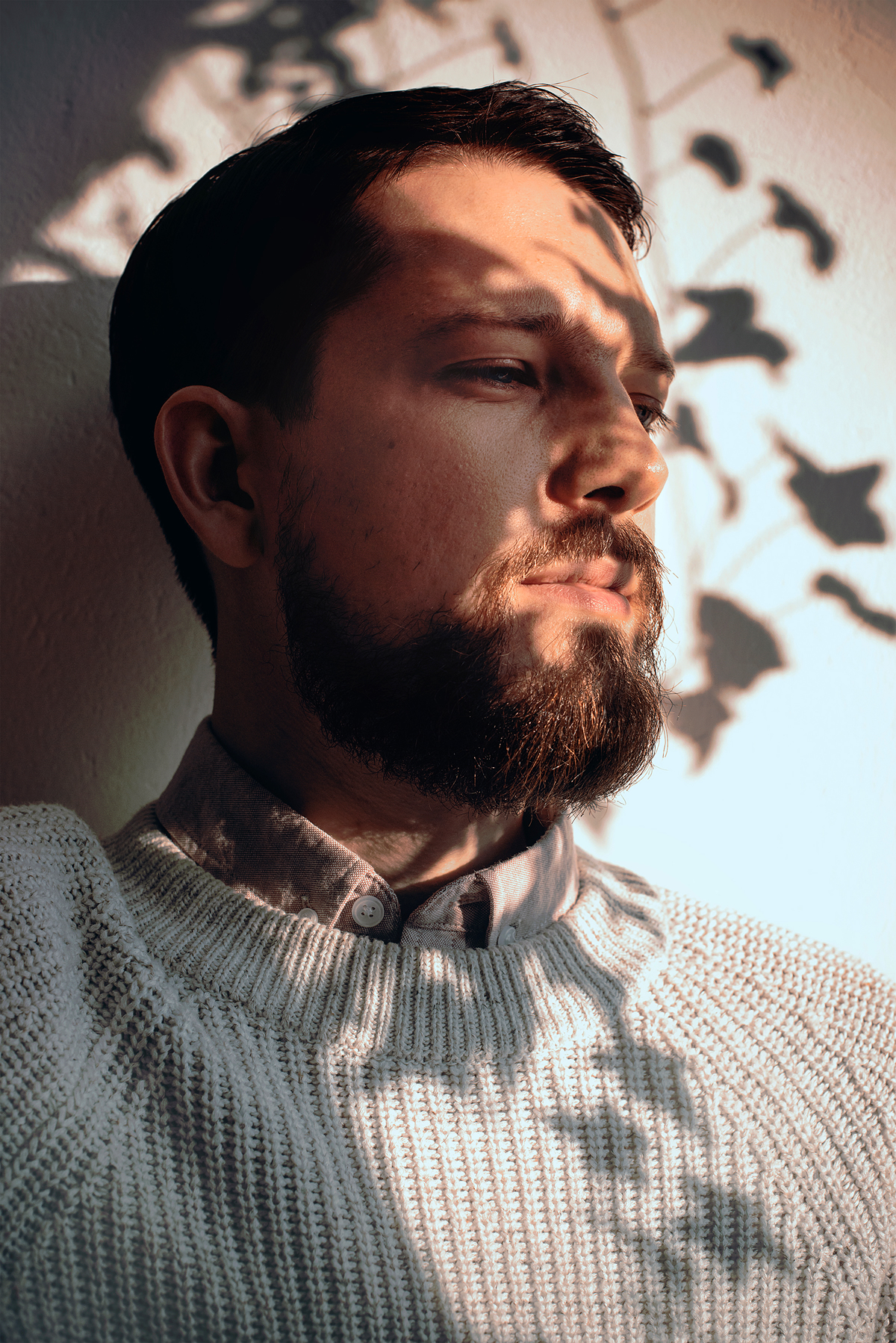
Zabarauskas’ first film, “Porno Melodrama,” which details a gay man’s decision to make a pornographic movie with his ex-girlfriend in order to make enough money for him and his boyfriend to leave Lithuania, premiered at Berlin Film Festival in 2011.
“There are many other films that have this kind of paranoia about gay villains, queer villains. I almost wanted to do something opposite,” Zabarauskas told the Blade while discussing the film. “It’s as though heterosexuality becomes this villain through the character of this villain, this ex-girlfriend. I wanted to play with that, allow myself that freedom to go very far. The title really hints more so, not to the erotic aspect of the film, because it’s not as explicit reality, but it’s more about the style of the film because it’s so out there.”
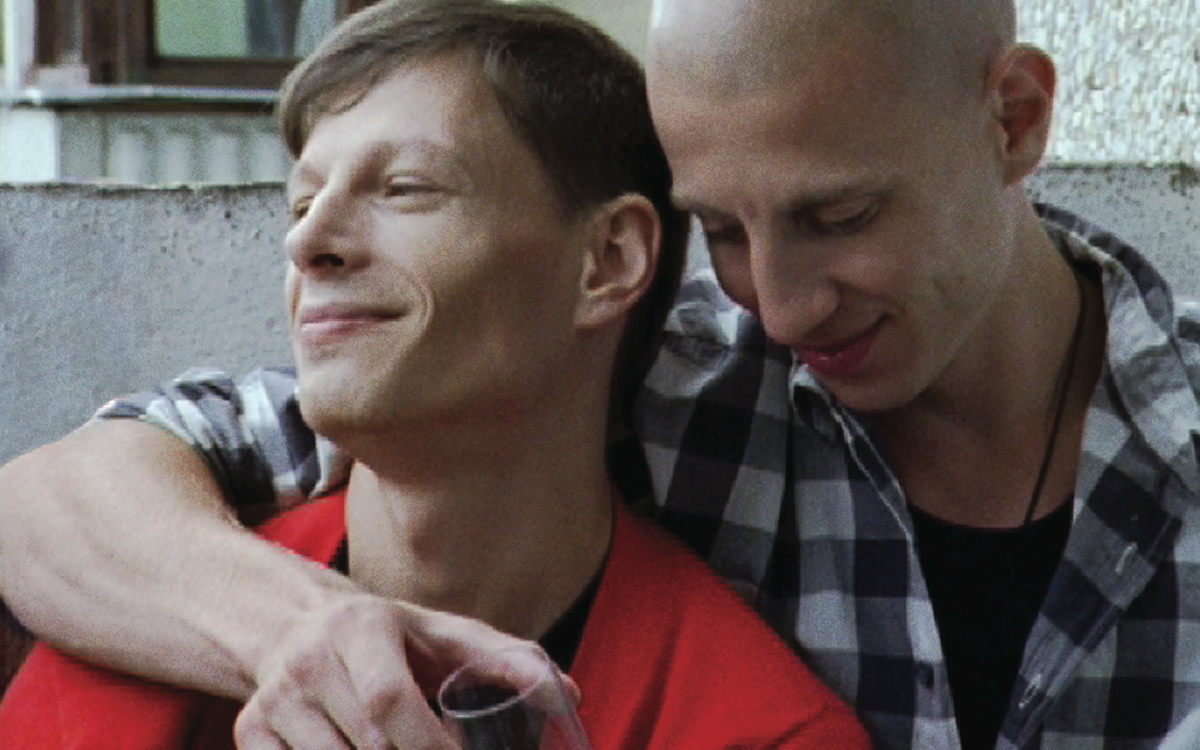
Zabarauskas came out as gay during “Porno Melodrama”‘s premiere at the Vilnius Film Festival.
“Very few people were out (in Lithuania) then in 2011,” he noted. “I got a lot of media attention … I talked about what it means to be gay on TV, print and all kinds of media.”
“It was a double-edged sword,” added Zabarauskas. “I was happy to contribute with my openness and I continue to do so today. On the other hand, I got so much pressure … the direct homophobia is understandable and easy to dissect. You know what it is, but then there was a lot of gray zone. I feel like I was trapped. I went under this huge scrutiny.”
The Berlin Film Festival then screened “Porno Melodrama.”
“I traveled the world, but then because I got so much media attention in Lithuania I was scrutinized by the critics and by film lovers and a lot of people (said) that I’m more of an activist,” said Zabarauskas. “I’m more of a public speaker than a filmmaker. The way I see it: Artists should be engaged or can be engaged, and it doesn’t contradict the art.”
The Lithuanian Film Center funded Zabarauskas’ third feature film, “The Lawyer,” which debuted in 2020.
“The Lawyer” highlights Marius, a gay corporate lawyer who forms what Zabarauskas describes as “an unexpected, human relationship” with Ali, Syrian refugee who is unable to leave Belgrade, Serbia, after his estranged father dies. Zabarauskas noted to the Blade that “The Lawyer” is the first Lithuanian film that portrays a male same-sex relationships and is one of the few made in Eastern Europe that shows LGBTQ+ and intersex refugees.
“I’m always interested in delving into very complicated political situations, but rather than to educate or send a direct message, I’m looking to find nuance and I’m looking to find interesting human drama,” he said. “I also don’t shy away from the kind of dialogue that they [Marius and Ali] have, in which they criticize [Syrian President Bashar] al-Assad. It’s so important not to forget that that was still ongoing and actually its fueled by Russia and by Putin.”
Lithuanian television showed “The Lawyer” for the first time on Nov. 11.
Lithuanian Shorts, in 2021 screened “Porno Melodrama,” which coincided with the film’s revival. Zabarauskas’ films have also been screened at the Tel Aviv International LGBT Film Festival and at New York City Pride’s human rights conference.
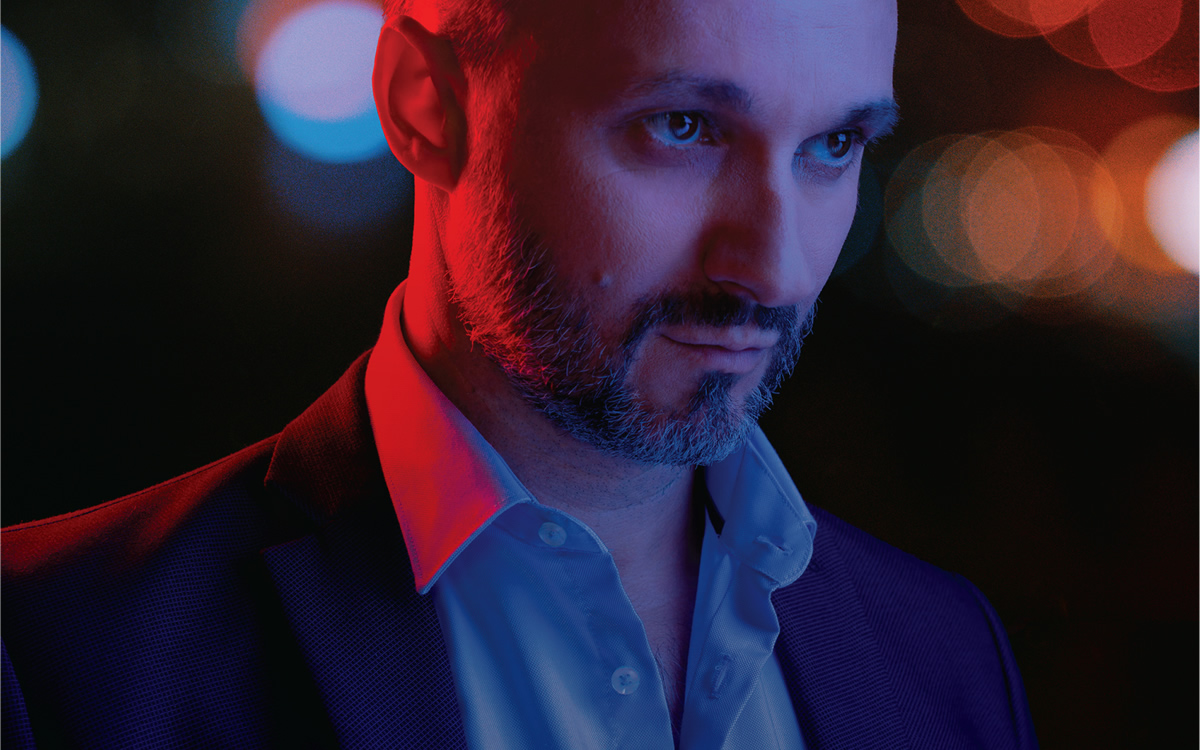
Zabarauskas spoke with the Blade nearly six months after Russia began its war against Ukraine.
Lithuania borders the Russian enclave of Kaliningrad and Belarus, whose president, Alexander Lukashenko, is a close ally of Russian President Vladimir Putin. Lithuania declared its independence from the Soviet Union in 1990, a year before it dissolved.
Zabarauskas noted then-Lithuanian President Dalia Grybauskaitė in 2014 labeled Russia a “terrorist state” after it annexed Crimea. Lithuanian MPs in May unanimously approved a resolution that described Russia’s war against Ukraine as an “act of genocide.”
“It’s the first time that I can be so proud of my country,” Zabarauskas told the Blade, referring to Lithuania’s posture towards Russia. “I’m actually very proud that Lithuania is right in terms of its foreign policy towards Russia and has been for a while.”
Zabarauskas acknowledged there is “fear” among Lithuanians about whether Russia will target their country, but he said, “that primal fear isn’t there anymore.” Zabarauskas also noted Lithuanians have welcomed Ukrainians into their homes.
“That’s been inspiring,” he said.
Gay U.S. ambassador ‘setting a personal example’
Lithuania bans discrimination based on sexual orientation and has lifted restrictions for male blood donors who have sex with men. Jessica Stern, the special U.S. envoy for LGBTQ+ and intersex rights, is among the more than 15,000 people who attended Baltic Pride 2022 in Vilnius in June.
Tomas Vytautas Raskevičius, the country’s second openly gay MP, is running to become Vilnius’ next mayor in 2023. Lithuanian Ambassador to the U.S. Audra Plepytė met with Zabarauskas when he was in D.C.
“Us artists, we have this opportunity to build bridges, to make pressure,” said Zabarauskas. “We sometimes have more freedom than politicians in what we can say and what we can do. I always try to use that in meeting diplomats and politicians and reminding them that the Lithuania LGBT+ is a part of Lithuanian society and we should celebrate our rights and our lives and that’s important.”
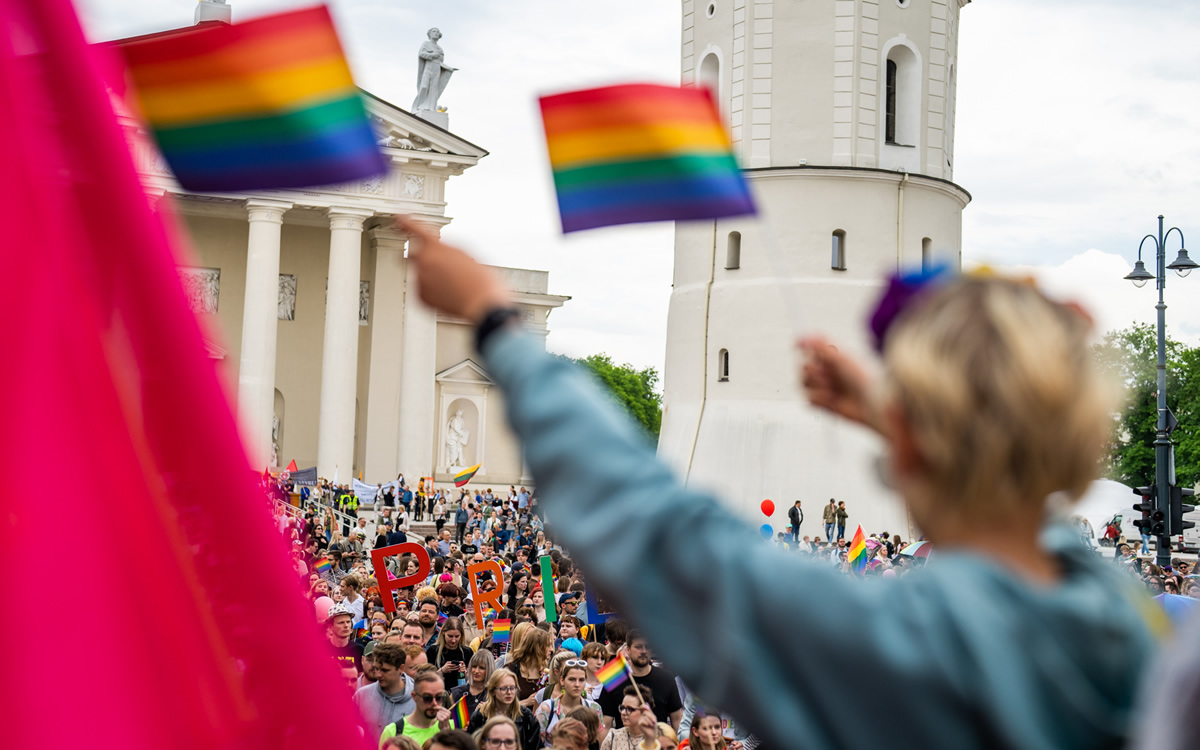
The Harvey Milk Foundation in 2021 honored Zabarauskas for his work. Zabarauskas noted this recognition to the Blade and applauded openly gay U.S. Ambassador to Lithuania Bob Gilchrist’s “personal leadership” on LGBTQ+ and intersex rights.
“I appreciate his leadership and I appreciate that he’s setting a personal example,” said Zabarauskas. “He’s making some impactful speeches at different events.”
Lithuania is one of only six European Union member states that do not legally recognize same-sex couples.
Ukrainian President Volodymyr Zelenskky in August announced his support for a civil partnership law for same-sex couples. Zabarauskas told the Blade he hopes Lithuanian lawmakers will follow the Ukrainian president’s lead and back an identical measure that has been introduced in Parliament.
“It’s so huge and a lot of people are inspired by those words, including in Lithuania,” said Zabarauskas. “I think it will be impactful in terms of our chances to get the civil unions law passed because it’s going to be very difficult to twist those words.”
Zabarauskas also said he and his fiancé want to get married in Lithuania.
“We got engaged earlier this year and we don’t want to get married abroad because it wouldn’t change anything in Lithuania,” he said.
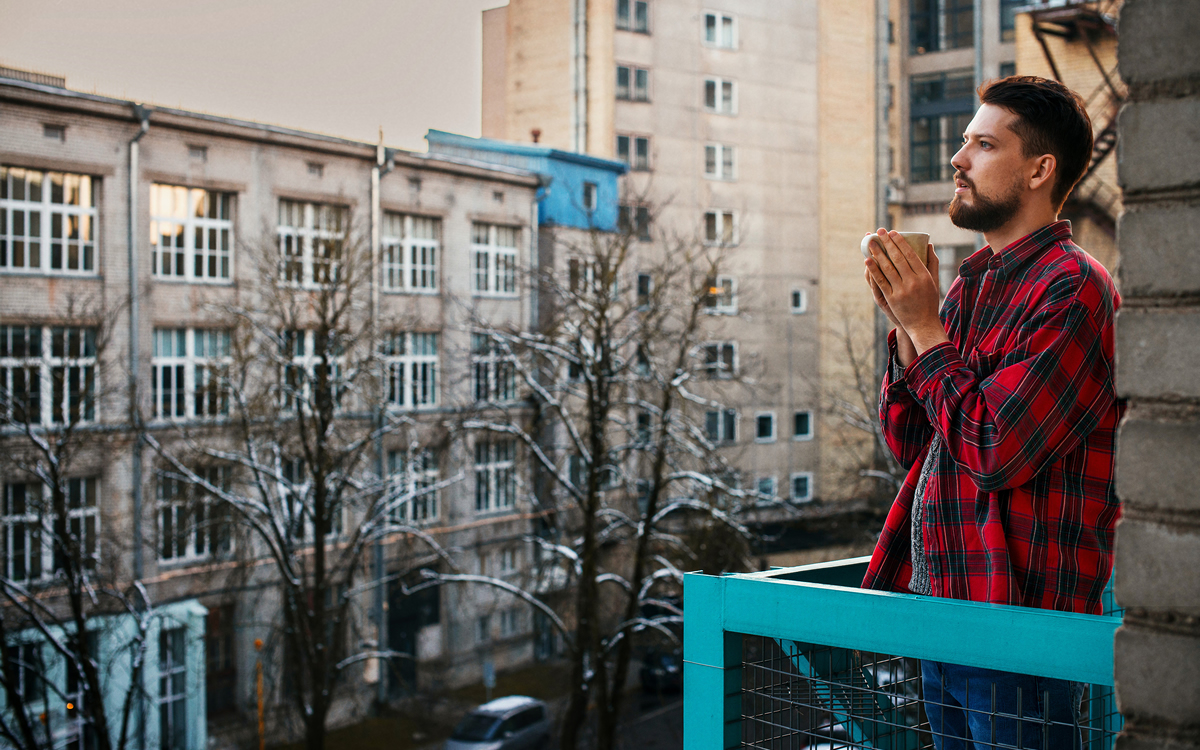
European Union
Gay US ambassador to Hungary marches in Budapest Pride parade
David Pressman has criticized government’s anti-LGBTQ crackdown

U.S. Ambassador to Hungary David Pressman on Saturday marched in the annual Budapest Pride parade.
Pressman, who is gay, posted to his X account pictures of him holding an American flag while standing behind a banner that read “United States embassy.” Pressman on Sunday spoke at Budapest Pride’s Family Pride Event that took place at his official residence.
“We’ve gathered for a celebration of families, of freedom, and of love — all things that are increasingly under attack for LGBT people in Hungary,” he said.
Pressman in his speech referenced a joint statement from 35 countries that expressed “serious concern about the targeting of LGBTQI+ people in Hungary, and called for the government to eliminate its discriminatory laws, policies, and practices.”
The U.S., Australia, Austria, Belgium, Bulgaria, Canada, Croatia, Cyprus, Czechia, Denmark, Estonia, Finland, France, Germany, Greece, Iceland, Ireland, Kosovo, Latvia, Lithuania, Luxembourg, Malta, Montenegro, North Macedonia, New Zealand, Norway, Poland, Portugal, Slovenia, Spain, Sweden, Switzerland, the Netherlands, the U.K. and Ukraine signed the statement alongside the U.S. and the General Delegation of Flanders, the Austrian Cultural Forum Budapest, the British Council, the Czech Centre, FinnAgora, Institut Français, Goethe-Institut, Instituto Camões and Instituto Cervantes.
“On the occasion of the 29th Budapest Pride Festival, we the undersigned embassies and cultural institutes express our full support for members of the lesbian, gay, bisexual, transgender, queer, and intersex (LGBTQI+) community in Hungary and their rights to equality and nondiscrimination, freedom of expression and peaceful assembly, and freedom from violence, among others,” reads the statement. “Respect for the rule of law and universal human rights are the foundations upon which democratic states are build. International human rights law is grounded on the broad premise that all individuals have the same rights and freedoms without discrimination.”
Pressman in his speech said the Family Pride Event took place “at a time when democracy itself — in this country and around the world — is confronting unprecedented and serious threats.”
“I’d like to talk with you this afternoon about freedom and democracy; and about those who instrumentalize love to undermine both,” said Pressman.
“The fact that LGBT people and democracy are both under increasing attack is no coincidence,” he added. “Those who seek to undermine democracy, traffic in fear; and, tragically, few currencies of fear continue to hold more value than the love in this community.”
Pressman further noted “posters all over Budapest during this political season fixated on you,” referring to LGBTQ Hungarians.
“It’s why your parliament adopted laws aimed at you, and your government is now implementing those laws to target you,” he said.

Pressman has been a vocal critic of Hungarian Prime Minister Viktor Orbán and of his government’s crackdown against LGBTQ rights that has grown worse over the last decade.
The U.S. ambassador in 2023 reiterated these criticisms during a Budapest Pride reception.
Budapest Pride spokesperson Johanna Majercsik earlier this month told the Washington Blade that Pride “is a particularly important event in Hungary.” (The Blade in April traveled to Budapest, and interviewed Majercsik and other Hungarian activists.)
“Despite being a full member of the European Union since 2004, the Hungarian government has systematically reduced the rights of the LGBTQ+ community,” said Majercsik. “The government apparently doesn’t want to stop there, inciting people against our community, and making references about passing new anti-LGBTQ laws in the future (calling them child protection laws).”
European Union
Gay man from Ukraine struggles to rebuild life in Berlin
Dmytro Shapoval arrived in Germany in March 2022

Editor’s note: International News Editor Michael K. Lavers was on assignment in Berlin from April 12-15.
BERLIN — A gay Ukrainian man with HIV who fled his war-torn country more than two years ago remains in Berlin.
Dmytro Shapoval first spoke with the Washington Blade in July 2022.
He was working at an IT company’s call center and studying web and UX design in Kyiv, the Ukrainian capital, when Russia launched its war against his country on Feb. 24, 2022. Shapoval less than a month later swam across a river with his cat Peach and entered Poland.
He arrived in the German capital on March 19, 2022.
“I feel very secure here,” said Shapoval when he first spoke with the Blade on July 22, 2022, during a reception that took place at the end of a two-day meeting with European activists the Organization for Refuge, Asylum and Migration organized.
Shapoval again spoke with the Blade on April 15 while he was at ORAM’s offices near Berlin’s Potsdamer Platz.
He said he was sleeping on a mattress on the kitchen floor of a Ukrainian friend’s apartment in Berlin’s Wedding neighborhood, while looking for a more permanent place to live.
Shapoval had just finished an IT course at a private university, but told the Blade he “was not in that headspace to study” because of the depression from which he said he suffers. Shapoval also told the Blade the German government has postponed his residency permit for a year.
“It’s challenging,” he said.
Germany has granted temporary protection to nearly 1 million Ukrainians
The German government has granted temporary protection to more than 900,000 Ukrainians since the war began. (The U.N. Refugee Agency says there are 2.2 million refugees in Germany.)
Ukrainians are able to enter Germany without a visa.
The German government offers those who have registered for residency a “basic income” that helps them pay for housing, food and other basic needs. Ukrainian refugees can also access health care, language classes, job training programs and childcare.
Shapoval and other single Ukrainian refugees receive €563 ($609.30) a month through the program.
Shapoval told the Blade it is difficult for him to find a job because his legal status remains uncertain. He also complained about German bureaucracy, which he described as “such a hell here.”
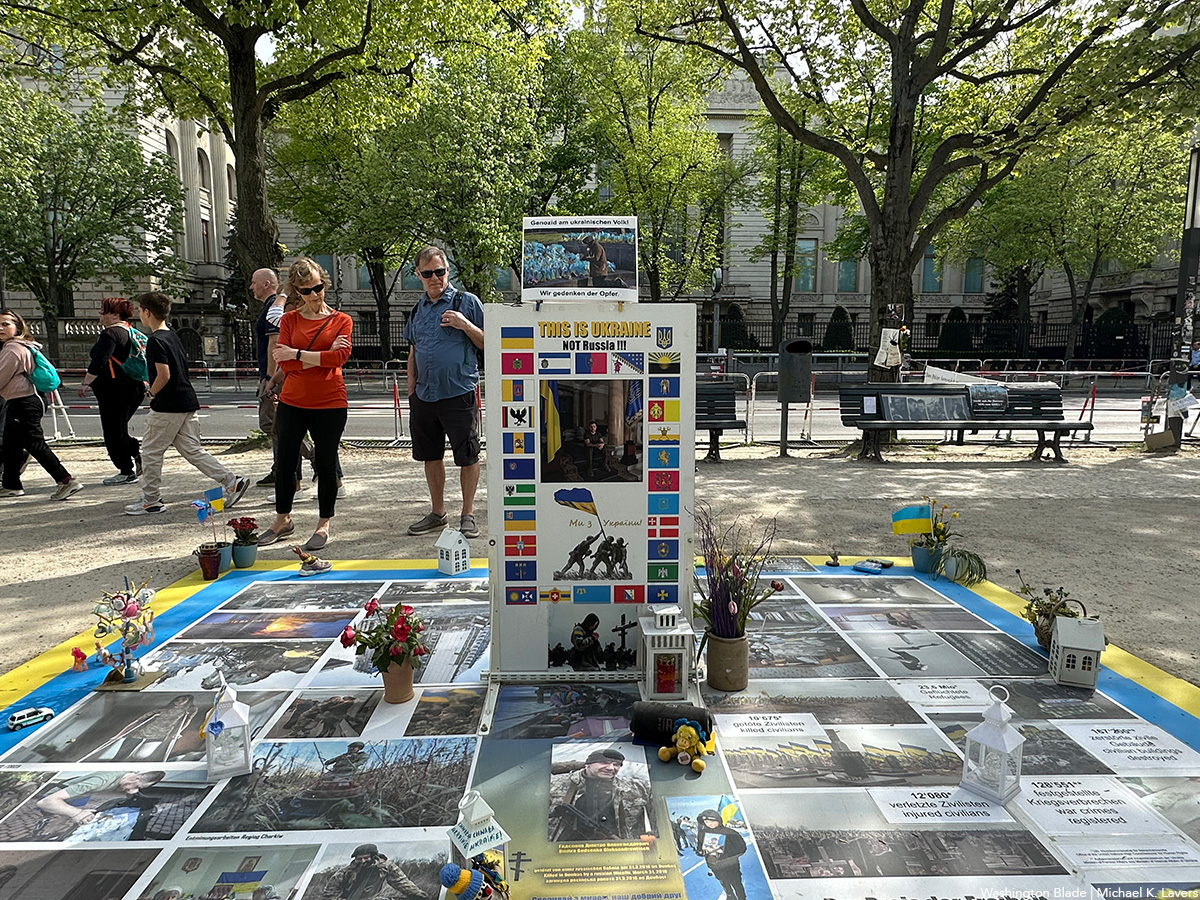
Shapoval’s mother remains in Dnipro, a city on the Dnipro River that is roughly 300 miles southeast of Kyiv.
He said the first year of the war was “pretty quiet” in Dnipro because it is not as big as Kyiv, Kharkiv, Odesa and other Ukrainian cities. Shapoval said the situation in Dnipro changed last fall.
Shapoval told the Blade a Russian missile hit a nine-story civilian building in the city.
“I had the worst day of my life because I knew that my mom was going to Dnipro,” he said.
Shapoval said the building the missile hit struck was close to his grandmother’s home.
“I was so horrified,” he told the Blade. “I was trying to call her to get in touch. She was not answering at all.”
Shapoval said his grandmother called him several hours after the attack. She told him the missile strike damaged the city’s communications infrastructure.
“It’s pretty horrible,” said Shapoval.
Shapoval spoke with the Blade hours before Ukrainian President Volodymyr Zelensky signed a controversial conscription law that seeks to replenish the country’s military. Zelensky last month also enacted a statute that lowers the minimum draft age from 27 to 25.
Shapoval said he does not want to go into the military, and has thoughts that he would die in the war. Shapoval also told the Blade he does not watch news reports about Ukraine because they exacerbate his depression.
“Just seeing these buildings destroyed and sometimes (at night when) people are sleeping there, or also (seeing) news about kids being stolen into Russia and then brainwashed there in these camps … is really bad,” he said.
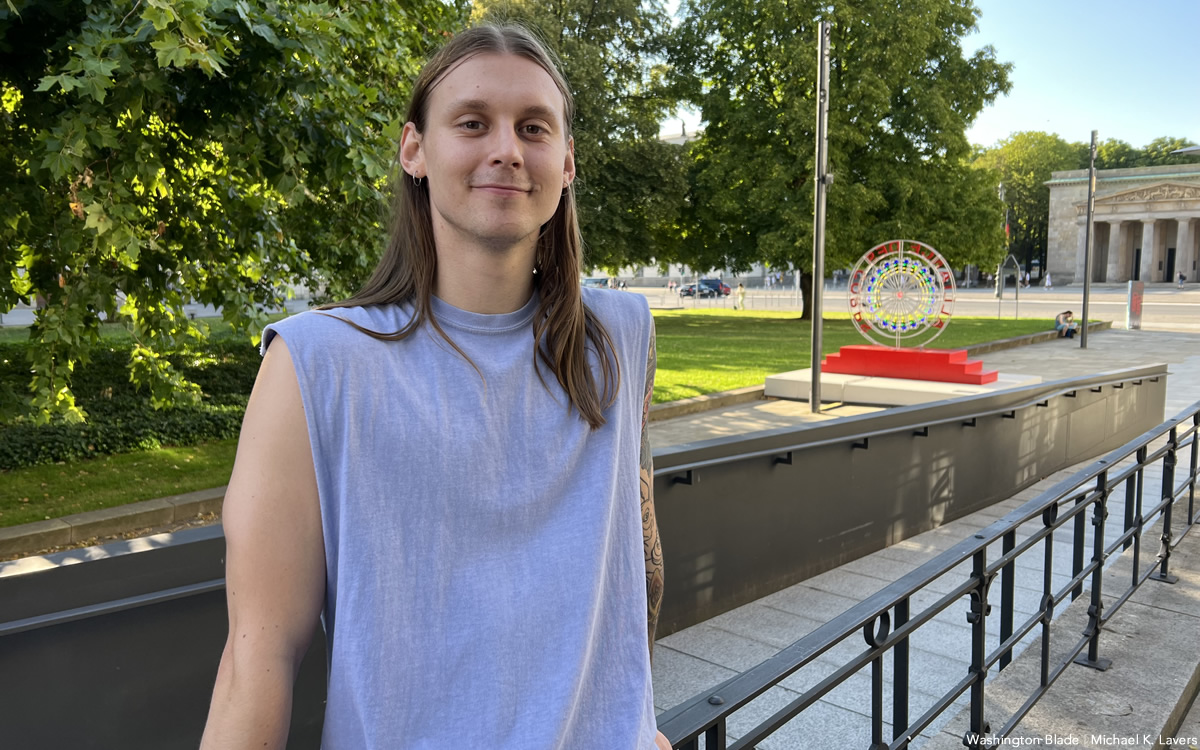
‘You’re a white refugee, so everything’s fine’
Shapoval noted support for Ukrainian refugees in Germany has begun to wane.
He recalled a conversation he had at a queer bookstore in Berlin’s Kreuzberg neighborhood during which someone who he described as German asked him what its like to be a refugee.
“Without even letting me answer without any space, he’s like, ‘Oh, but you’re a white refugee, so everything’s fine,'” recalled Shapoval.
Hamas on Oct. 7, 2023, launched a surprise attack against Israel.
Shapoval said the Israel-Hamas war in the Gaza Strip has pushed the conflict between Ukraine and Russia and the plight of Ukrainian refugees out of the headlines. He also recalled an exchange he had with a Syrian woman with whom he had become friends in Berlin after Oct. 7.
Shapoval said she wrote in an Instagram post that “one or two years of war in Ukraine, this amount of kids died and two months of war in Palestine, this amount of kids died.”
“I’m like, what the fuck is that?” he recalled. “It’s not a competition of dead babies.”
“The fact you put two in comparison already makes one side less valuable and one side more valuable, but it’s also different pain,” added Shapoval. “I know that it is also horrible there … it seems like people are not understanding that.”
Shapoval said he reached out to her and tried to explain his perspective.
“It’s a bit hard right now,” he told the Blade.
European Union
LGBTQ+ activists demand EU sanction Uganda over Anti-Homosexuality Act
Yoweri Museveni signed law on May 29, 2023
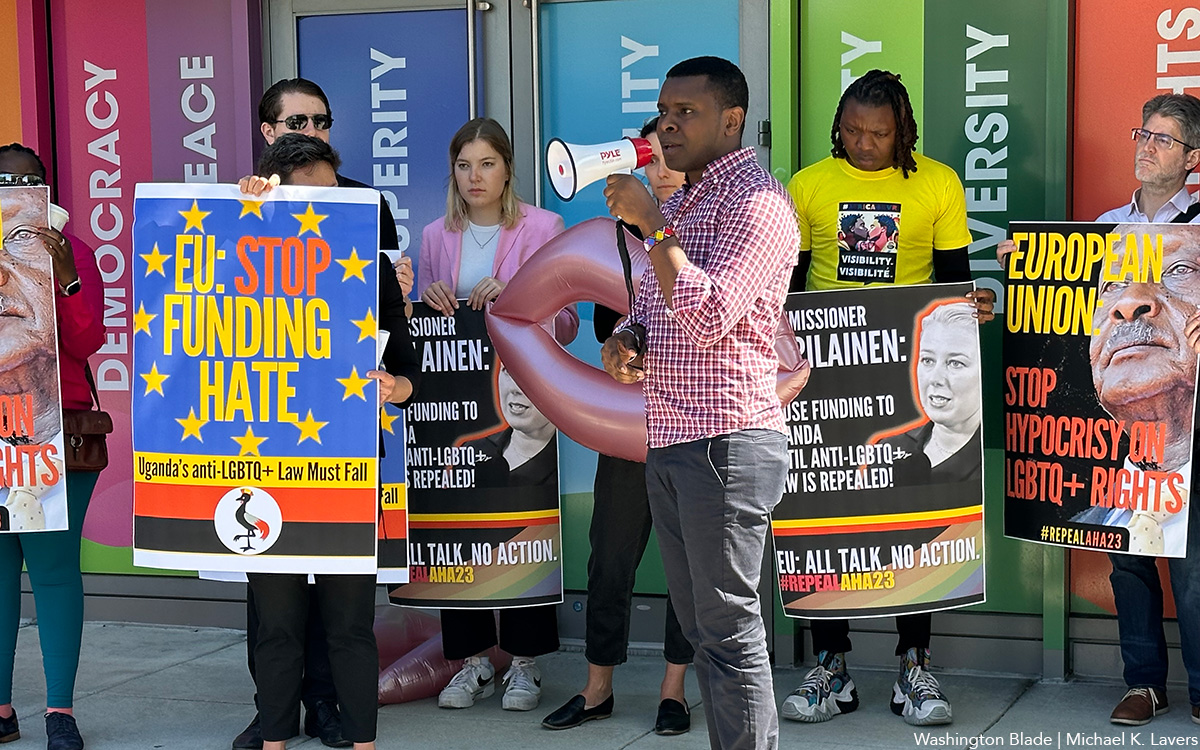
WASHINGTON — More than a dozen activists who protested in front of the European Union Delegation to the United States in D.C. on Thursday demanded the EU to sanction Uganda over the country’s Anti-Homosexuality Act.
Hillary Innocent Taylor Seguya, a Ugandan LGBTQ+ activist, and Global Black Gay Men Connect Executive Director Micheal Ighodaro are among those who spoke at the protest. Health GAP Executive Director Asia Russell also participated in the event that her organization organized along with GBGMC and Convening for Equality Uganda, a Ugandan LGBTQ+ rights group.
Ugandan President Yoweri Museveni last May signed the Anti-Homosexuality Act that, among other things, contains a death penalty provision for “aggravated homosexuality.”
The country’s Constitutional Court on April 3 refused to “nullify the Anti-Homosexuality Act in its totality.” A group of Ugandan LGBTQ+ activists have appealed the ruling.
A press release that Health GAP issued ahead of Thursday’s protest notes EU Commissioner for International Partnerships Jutta Urpilainen on March 6 announced more than €200 million ($212.87 million) for Uganda in support of “small business owners, young female entrepreneurs, agribusinesses as well as vital digital infrastructure projects in full Team Europe format with the European Investment Bank (EIB) and several member states.”
“These concrete initiatives will make a difference to aspiring entrepreneurs, Ugandan businesses and create jobs in multiple sectors,” said Urpilainen in a press release that announced the funds. “This is a perfect example of how Global Gateway can make a tangible difference for citizens and businesses and unlock the full potential of a partner country by working together.”
Convening for Equality Uganda on Tuesday in a letter they sent to Urpilainen asked the EU to review all funding to Uganda and “pause or reprogram any funds that go via government entities.” The protesters on Thursday also demanded European Commission President Ursula von der Leyen “to hold Ugandan President Museveni’s government accountable for this attack on human rights.”
Josep Borrell, the EU’s top diplomat, in a statement he released after Museveni signed the Anti-Homosexuality Act said the law “is contrary to international human rights law and to Uganda’s obligations under the African Charter on Human and People’s Rights, including commitments on dignity and nondiscrimination, and the prohibition of cruel, inhuman or degrading punishment.”
“The Ugandan government has an obligation to protect all of its citizens and uphold their basic rights,” said Borrell. “Failure to do so will undermine relationships with international partners.”
“The European Union will continue to engage with the Ugandan authorities and civil society to ensure that all individuals, regardless of their sexual orientation and gender identity, are treated equally, with dignity and respect,” he added.
Urpilainen last September in a letter to the European Parliament said the EU would not suspend aid to Uganda over the law.
European Union
Out gay Polish government minister represents change of course
He is a lawyer who worked for the Campaign Against Homophobia, a Polish LGBTQ rights group, for several years before he entered politics
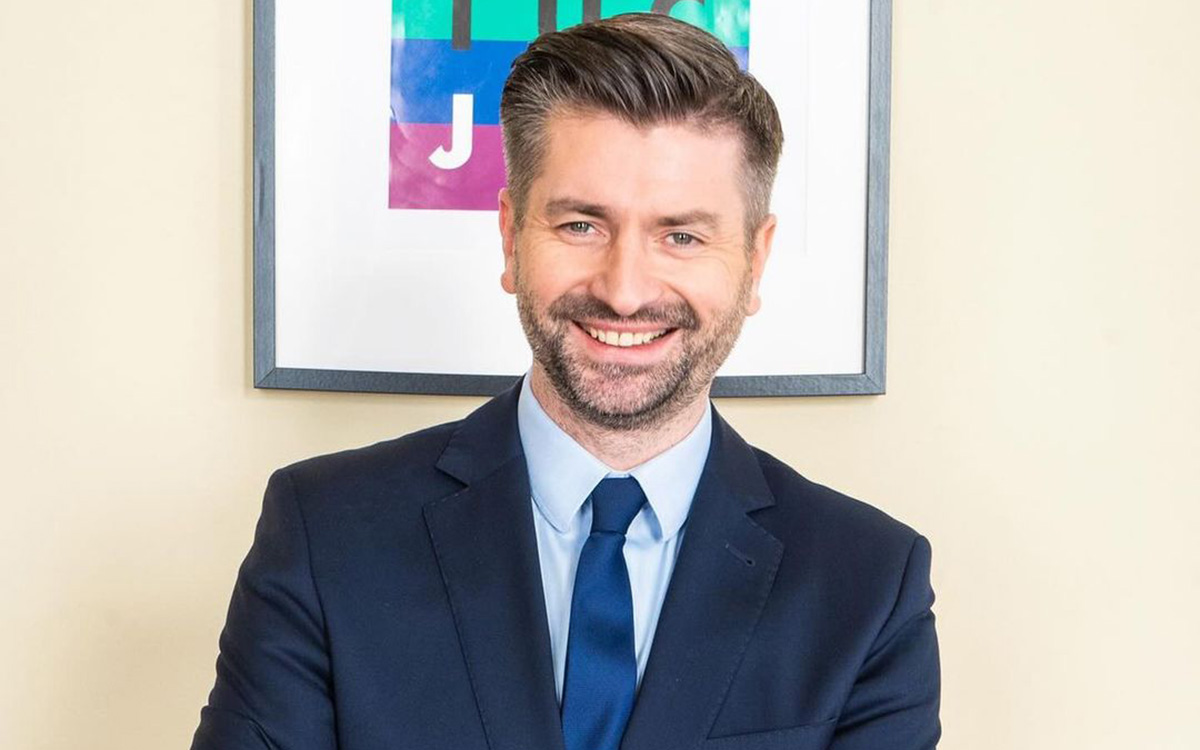
WARSAW, Poland — Poland’s only openly gay Cabinet minister on Tuesday spoke with the Washington Blade about the fight for LGBTQ rights in his country, Ukraine and U.S. politics.
Deputy Justice Minister Krzysztof Śmiszek assumed his post last Dec. 13 after Donald Tusk became prime minister.
The Civil Coalition, a group of opposition parties that Tusk leads, two months earlier won a majority of seats in the Sejm, the lower house of Poland’s parliament. President Andrzej Duda, an ally of the conservative Law and Justice party who opposes LGBTQ rights, remains in office as part of the governing coalition.
Śmiszek, a member of the New Left party, has been a member of the Sejm since 2019.
He was born Stalową Wola, a city in southeastern Poland that is close to the country’s borders with Ukraine and Slovakia. Śmiszek now represents Wrocław, the country’s third largest city that is located in southwestern Poland.
He is a lawyer who worked for the Campaign Against Homophobia, a Polish LGBTQ rights group, for several years before he entered politics. Śmiszek’s partner is former MP Robert Biedroń, who is now a member of the European Parliament.
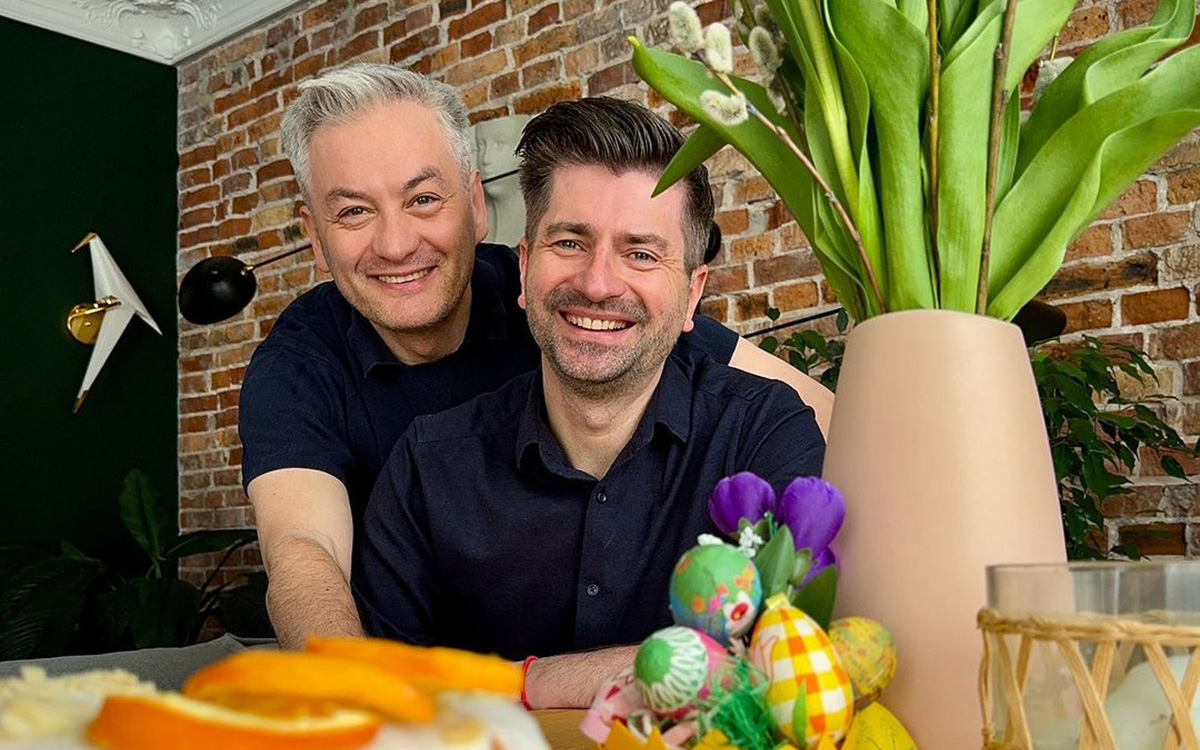
Śmiszek noted to the Blade during an interview in his office that the Justice Ministry has introduced a bill that would add sexual orientation and gender identity to Poland’s hate speech and hate crimes laws.
The Council of Ministers, which includes members of Tusk’s Cabinet, is expected to approve the proposal in the coming weeks. Śmiszek said MPs will support the measure, even though critics say it would limit free speech.
“It was quite natural for us, I would say, to agree on that,” he told the Blade. “We all witnessed all these statements and horrible actions towards LGBT (people during the previous government.)”
Duda became Poland’s president in 2015.
He said before he defeated Warsaw Mayor Rafał Trzaskowski in the country’s 2020 presidential election that LGBTQ “ideology” is more dangerous than communism. Duda has also claimed LGBTQ Poles are “a threat to the family” and “want to sexualize children.”
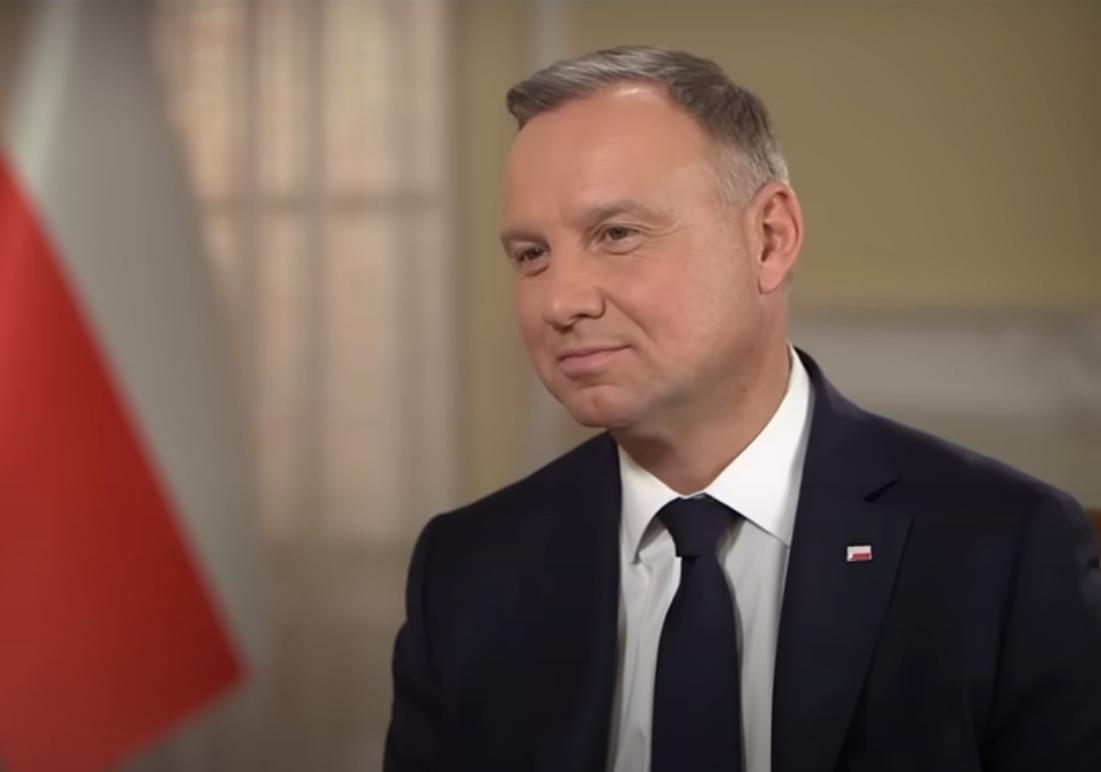
More than 100 municipalities across Poland ahead of the election adopted resolutions that declared themselves “LGBT-free zones.”
The Law and Justice Party and Poland’s influential Roman Catholic Church supported them, while the European Union cut funding to municipalities that adopted them. The Warsaw Voivodship Administrative Court on Feb. 6 struck down the country’s final “LGBT-free zone” resolution that Mordy, a town in Siedlce County in eastern Poland that is roughly half way between Warsaw and the Belarusian border, adopted in 2019.
Tusk has indicated his support of a civil partnership bill, but Śmiszek conceded it will be a “huge” challenge to secure passage in parliament because it is not an official part of the coalition government’s manifesto.
Śmiszek noted Poland has dropped its opposition to the case of a transgender man who filed a lawsuit in the European Union Court of Justice in Luxembourg after Romania refused to recognize his legal name and gender change that he received in the U.K.
“We are trying not only to change the legal situation of LGBTI folks here in this country, but also we are taking a completely new approach, also of Poland, as a member of the European Union,” he said.
The Justice Ministry last month for the first time with LGBTQ activists.
Śmiszek said former Justice Minister Zbigniew Ziobro, a member of the right-wing Sovereign Poland party, wrote many of the previous government’s proposals that targeted LGBTQ people and women. Śmiszek further described the ministry before the current government took office as a “governmental center of anti-LGBTI actions.”
“That was a very moving meeting that after eight years of hatred that was produced here in this ministry,” he said.
Śmiszek pointed out Duda’s first presidential veto was a bill that would have made the process through which transgender Poles could undergo gender-affirming surgery easier. Śmiszek said the new government wants “to make the lives of trans people a bit better and bearable in terms of relations with the state and with relations with the administration,” but conceded it “is difficult.” He also said Duda, the Constitutional Tribunal and the Catholic Church remain barriers to the advancement of LGBTQ rights.
“We are not starting from scratch in terms of new initiatives,” Śmiszek told the Blade. “We are getting back to the good solutions.”
“However, we are fully aware that there are plenty of conservative anchors and blockages in the institutional architecture,” he added.
Śmiszek also said his sexual orientation is not an issue to Tusk, to his fellow ministers and MPs.
“I haven’t heard any discussion or hesitation about should we have this guy in the ministry or not,” he said. “My sexual orientation is not an issue at all.”
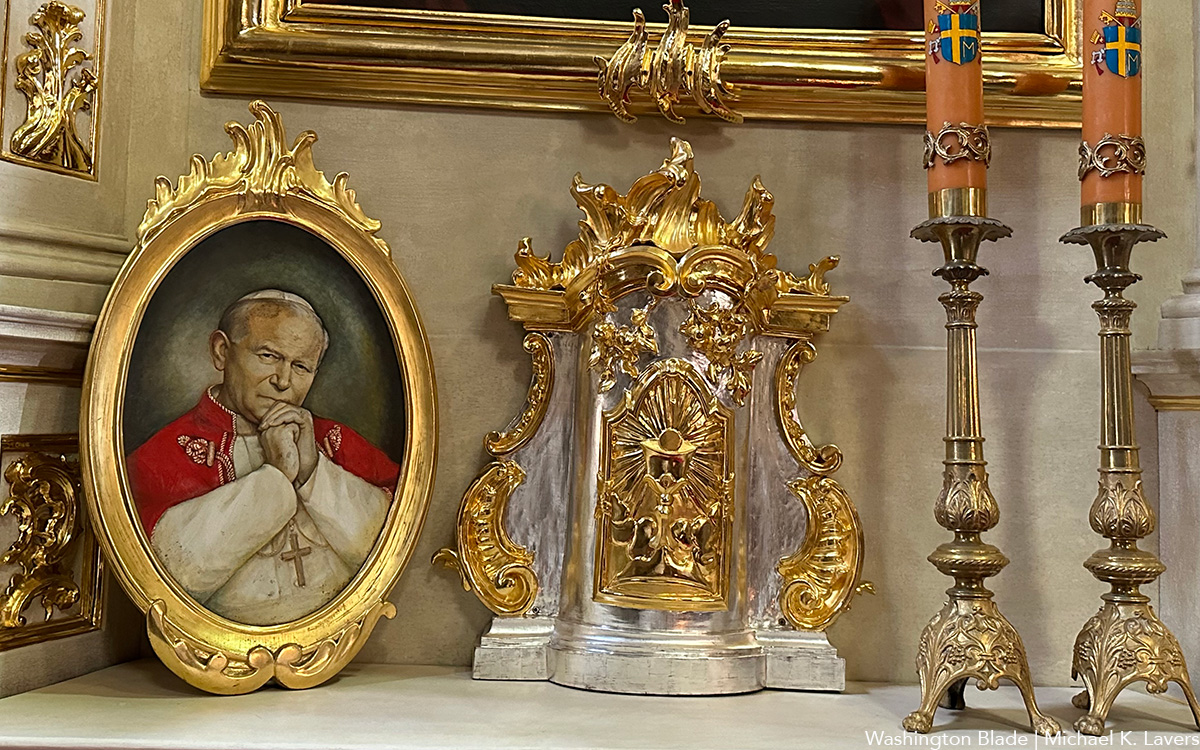
Poland knows Russia ‘very well’
Russia on Feb. 24, 2022, launched its war against Ukraine.
Śmiszek noted upwards of 2 million Ukrainians sought refuge in Poland, and many of them have remained in the country.
“Polish society passed its exam in terms of humanitarian aid and compassion for those who are victims of this aggressive war of Russia,” said Śmiszek.
A Russian missile on Nov. 15, 2022, killed two people in Przewodów, a village Hrubieszów County that is on the Ukrainian border. Another Russian missile on March 24 briefly entered Polish airspace near Oserdów, a village that is less than five miles away from Przewodów.
Śmiszek told the Blade he is increasingly concerned the war will spread to the Baltic countries — Lithuania, which borders Poland, and Latvia and Estonia — and to Poland itself.
The Russian exclave of Kaliningrad on the Baltic Sea also borders Poland.
“We are observing now, especially during the last few months, that something is going to happen,” he said.
Śmiszek acknowledged Ukraine in recent months has suffered setbacks on the battlefield, and the U.S. “is not very open to providing any help.”
“You can see Trump, what he is saying. You can also see some Western countries that are still hesitating,” he said. “This is a growing, unspoken emotion within Polish society that something is going to happen, the war will knock on our doors soon, in the next couple of years, and we are the second or third target of Putin if he’s not stopped by the united West.”
Śmiszek added Poland knows the Russians “very well.”
“That is why this is not something unusual when a Pole thinks about Russians invading our country,” he said. “It’s happened before.”
Tusk and Duda last month met with President Joe Biden at the White House in the hopes that Congress would pass a Ukraine funding bill. Śmiszek while speaking to the Blade criticized the delay.
“I know that they are trying to build their popularity, saying we should not spend billions of dollars for the wars that do not concern us and Russia will never attack us, blah, blah, blah,” he said. “In a way I do understand this rhetoric, but I don’t understand … it’s really a short-sighted approach.”
“I really count on changing the approach of the U.S. because this is really a huge threat to world democracy, to human rights and we always perceive the U.S. as a kind of element of guarantees for democracy around the world,” added Śmiszek. “This time the U.S. is not passing its exam, especially the conservative part of American politics.”
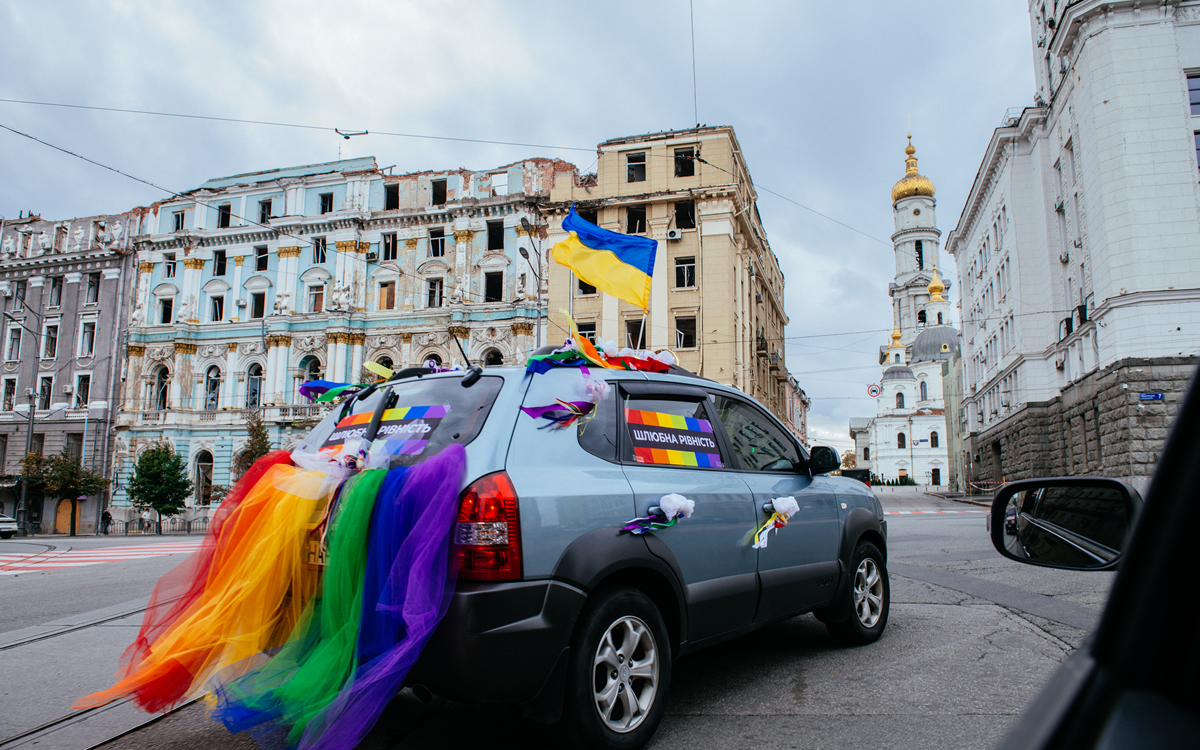
Śmiszek said Poland will continue to work with the U.S., regardless of who wins this year’s presidential election. He did, however, express concerns over former President Trump based on his positions on LGBTQ and reproductive rights, his U.S. Supreme Court nominees and Ukraine.
“This is kind of worrying,” said Śmiszek. “This kind of approach to fundamental issues very relevant to the stability of the world is now in the hands of the guy who you cannot predict what his decisions will be when the time comes and it will be a need for taking very serious decisions concerning the stability of the world.”
“He portrays himself as quite unstable I would say in terms of values he wants to defend,” he added.
European Union
Irish Prime Minister Leo Varadkar resigns
Gay head of government first elected in 2017
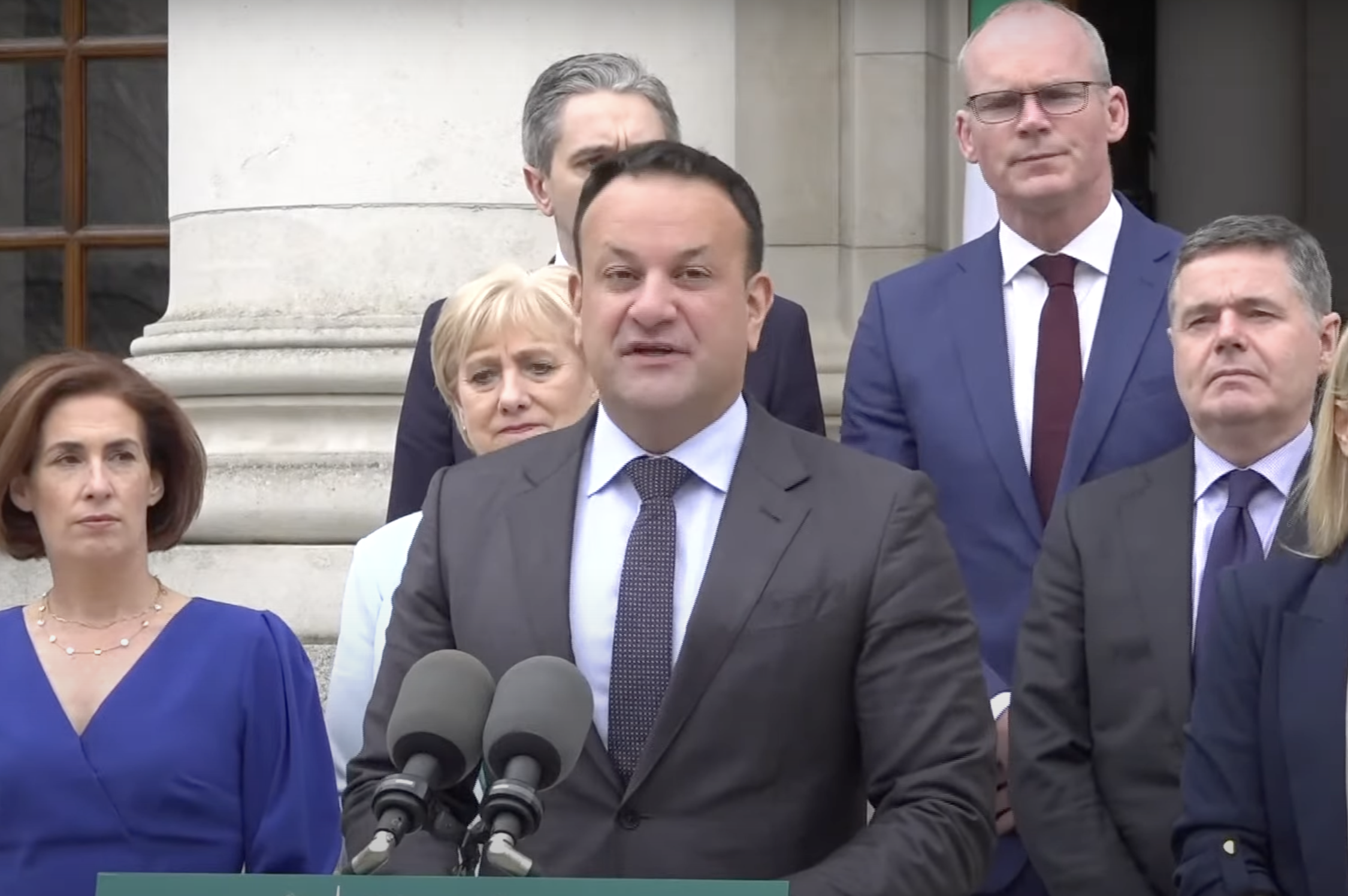
DUBLIN, Ireland — Irish Prime Minister Leo Varadkar on Wednesday announced he will step down once his party selects his successor.
Varadkar, who is gay, also said he will immediately resign as Fine Gael’s leader.
“My reasons for stepping down are both personal and political,” said Varadkar in comments he made outside the government’s offices in Dublin, the Irish capital.
Varadkar, 45, became Ireland’s first gay prime minister in 2017.
He raised LGBTQ+ issues with Pope Francis when he visited Ireland in 2018.
Varadkar the following year attended a St. Patrick’s Day breakfast at then-Vice President Mike Pence’s official residence in D.C. with his husband, Dr. Matthew Barrett. Varadkar and Barrett last week attended a St. Patrick’s Day event that Vice President Kamala Harris and second gentleman Doug Emhoff hosted at the Naval Observatory.
Varadkar in 2020 stepped down after Fine Gael lost 15 Parliament seats in a general election, but remained in the Irish government. Varadkar once again became prime minister in 2022.
Varadkar announced his resignation four days after Irish voters rejected proposals that would have amended language in the country’s constitution that says a woman’s place is in the home and families are based on marriage. (Ireland in 2015 became the first country to extend marriage rights to same-sex couples through a referendum.)
The Irish government last year pledged to ban so-called conversion therapy. The country’s hate speech law has included gender identity since 2022.
“I’ve proudly made the country a more equal and more modern place when it comes to children, the LGBT community, equality for women and their bodily autonomy,” said Varadkar.
European Union
Czech lower house rejects equal marriage bill
Lawmakers agree to “compromise” bill expands same-sex couples’ rights, allows stepchild adoption but senators have vowed to continue fighting
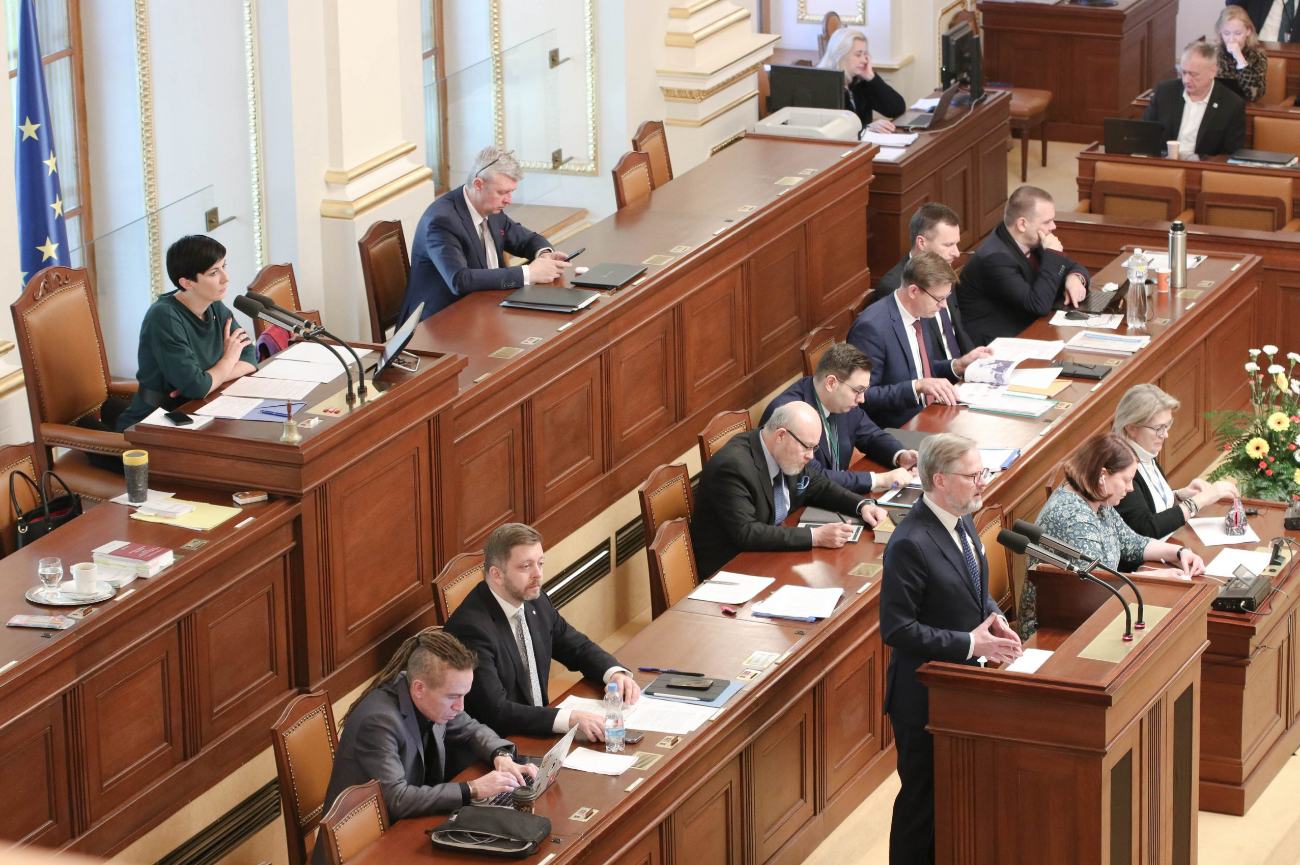
By Rob Salerno | PRAGUE, Czech Republic – The lower house of the Czech parliament rejected a bid to allow same-sex marriage in the Central European country Wednesday afternoon, instead passing a compromise bill that expand the rights of same-sex couples in registered partnerships and allow them to adopt each other’s biological stepchildren.
The bill heads to the senate, where some senators have vowed to continue fighting for full equality.
Czechia has allowed same-sex couples to form registered partnerships since 2006, but these accorded limited rights compared to marriage. Notably, same-sex couples were barred from adoption, and were not allowed a widow’s pension or joint property rights.
Lawmakers were debating a bill that would have legalized same-sex marriage, as well as a set of proposed amendments that would have instead expanded the rights of couples in registered partnerships. While a parliamentary committee had recommended that lawmakers vote on the proposals from the most expansive to the least expansive, parliament instead reversed that order. In the event, the proposal for full equal marriage didn’t even come for a vote as the compromise amendment was passed first.
Under the compromise bill passed Wednesday, registered partnerships will be renamed “partnerships,” and same-sex couples will have all the same rights as married couples except with regard to adoption. Joint adoption will not be allowed, and partners will only be allowed to adopt each other’s biological children.
The compromise bill passed with 118 votes in favor, 33 against, and 23 abstentions. A proposal that would have allowed full joint adoption rights received 66 votes in favor to 54 against with 64 abstentions, but failed because it required a majority of lawmakers present, or 93 votes, to pass.
Czech marriage equality advocacy group Jsme Fér says the result was disappointing.
“It is a sad day for thousands of families with children who have two moms or two dads and hundreds of thousands of LGBT people. It is a sad day for justice and equality in our country,” the group posted on X following the vote.
Same-sex marriage has been a live political issue in Czechia for the past several years. Polls have consistently shown wide support for same-sex marriage in the country, but support among lawmakers has long lagged public opinion.
Civil society had also mobilized to support same-sex marriage, with groups representing university students, artists, business groups, and large corporations joining campaigns urging legislators to support equal marriage.
Ahead of the vote Wednesday, President Petr Pavel, who campaigned last year on a promise to support same-sex marriage, urged lawmakers to support equality.
“I recognize the principle of freedom and equality of every person from the point of view of law and see no reason to limit rights based on sexual orientation. I believe we are a tolerant society and we will rectify these rights as soon as possible. There is no change in this position of mine,” Pavel wrote in a post on X.
The compromise bill now heads to the senate, which will need to pass it before it can become law. At least one senator has said he will urge his colleagues to insist on full marriage equality.
“A watered-down version of same-sex marriage is heading to the Senate. I am sorry that the majority of MPs were against equal marriage for all. In the Senate, we still have a chance to fix it, I am ready to file a PN. I don’t want to continue the regime of two categories of people,” senator Lukáš Wagenknecht of the Pirate Party wrote on X.
But the bill may face an uphill battle in the Senate, which is slightly more conservative than the lower house. Last month, the senate rejected ratifying the Istanbul Convention on Domestic Violence, a European treaty meant to protect women, over concerns that the convention would expand LGBT rights. In fact, the treaty does not mention LGBT people, but anti-LGBT forces have been mobilizing against it in Eastern Europe.
As in many countries in Eastern Europe, support for same-sex marriage has become a proxy for support of Western or pro-European Union values. Of the 27 EU countries, 16 allow same-sex marriage, the most recent being Greece and Estonia. A further 5 recognize some form of civil union, while a civil union bill has been proposed by Poland’s new government and another civil union bill is before the Lithuanian parliament.
The next Czech parliamentary election is not expected until October 2025.
******************************************************************************************
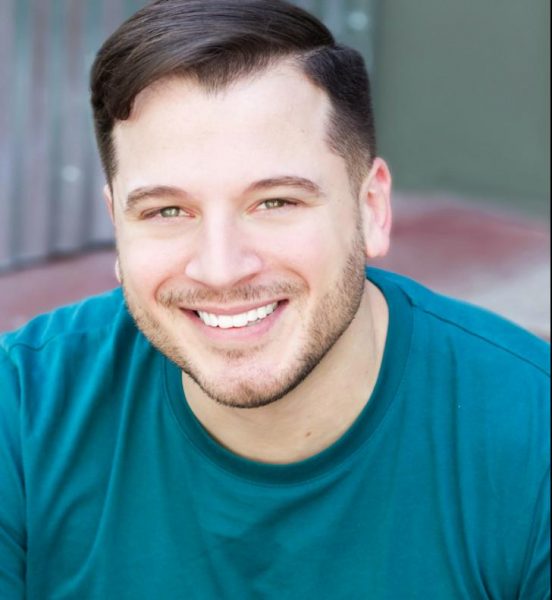
Rob Salerno is a writer and journalist based in Los Angeles, California, and Toronto, Canada.
European Union
Gabriel Attal becomes France’s first openly gay prime minister
Former education minister, 34, to succeed Élisabeth Borne
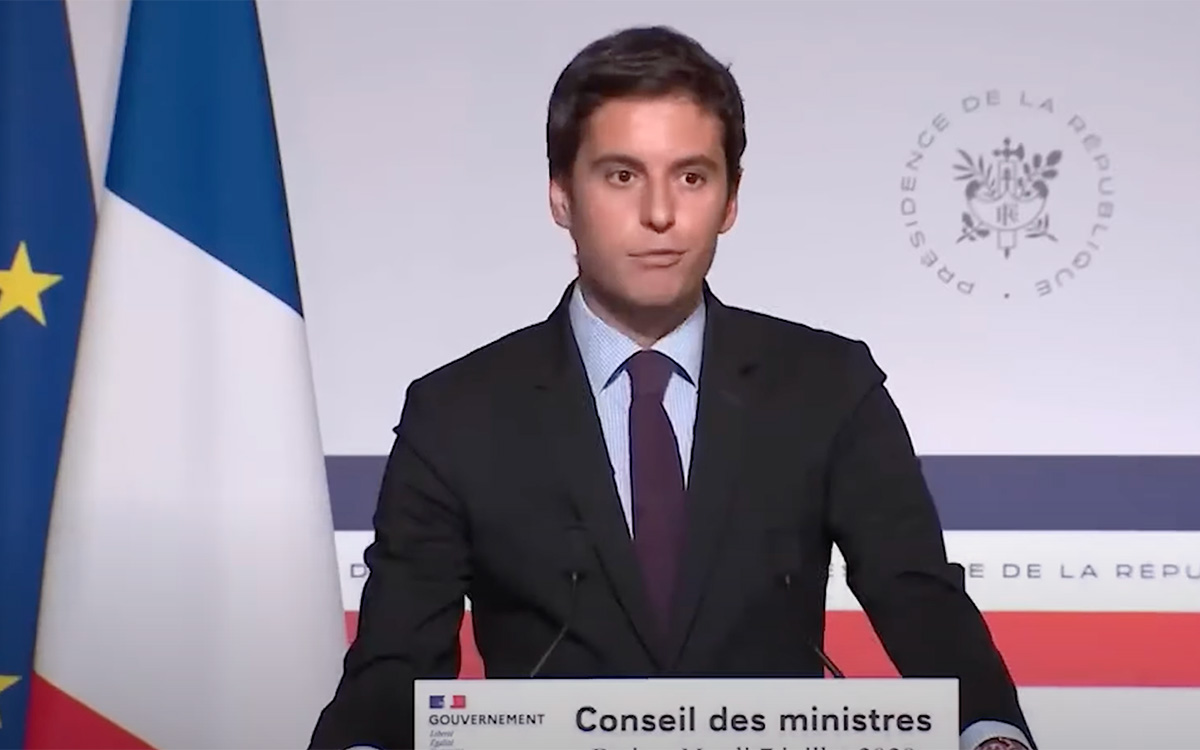
PARIS — Gabriel Attal on Tuesday became France’s youngest and first openly gay prime minister.
President Emmanuel Macron appointed Attal to succeed Élisabeth Borne as he continues to reshuffle his government ahead of European elections that will take place in June.
Attal, 34, was a government spokesperson before Macron appointed him the country’s education minister last year. Attal’s father is a Tunisian Jewish man.
“I know I can count on your energy and your commitment to implement the rearmament and regeneration project that I have announced,” said Macron on X.
Attal in his own X post thanked Macron for “your confidence.”
“I appreciate the honor given to me to be appointed prime minister,” said Attal.
“One goal: Keep control of our destiny, unleash French potential and rearm our country,” he added. “At work, with strength, humility and without taboos in the service of the French people.”
LGBTQ+ Victory Institute President Annise Parker in a statement applauded Attal’s appointment.
“At a time when our rights are under attack across the globe, France is sending a powerful statement by appointing its first out LGBTQ+ prime minister — one of the highest-ranking positions held by an LGBTQ+ person anywhere in the world,” said Parker. “Democracies are stronger when LGBTQ+ people can participate at every level of government and Prime Minister Attal’s appointment will inspire even more LGBTQ+ people to consider public service.”
European Union
Marriage equality law takes effect in Estonia
Statute is ‘a very important message from the government’
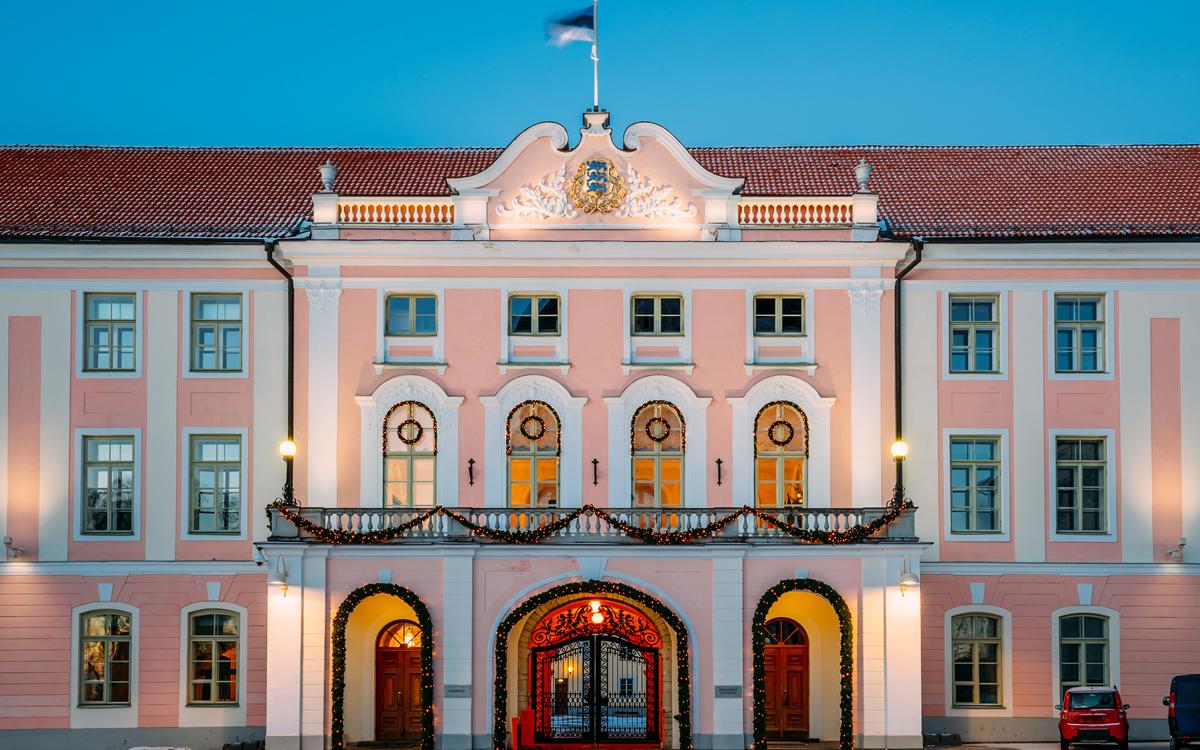
TALLINN, Estonia — A law that extends marriage and adoption rights to same-sex couples in Estonia took effect on Monday.
Lawmakers last July approved the marriage equality bill by a 55-34 vote margin. Estonia is the first Baltic country and the first former Soviet republic to allow same-sex couples to legally marry.
“It’s an important moment that shows Estonia is a part of northern Europe,” Baltic Pride Project Manager Keio Soomelt told the Guardian newspaper. “For the LGBT+ community, it is a very important message from the government that says, finally, we are as equal as other couples; that we are valuable and entitled to the same services and have the same options.”
The country’s civil partnership law has been in place since 2013.
The Guardian reported same-sex couples could begin to apply for marriage licenses on Monday. Authorities are expected to process the first applications by Feb. 2.
European Union
German Cabinet approves ‘self-determination law’ for Trans, nonbinary people
Process to legally change name and gender on official documents would be simplified

BERLIN — The German Cabinet on Wednesday approved a “self-determination law” that would simplify the process for Transgender or nonbinary people to legally change their name and gender in official documents.
The Associated Press notes Trans or nonbinary adults would only have to notify a registrar office that they plan to legally change their name and gender in official documents and wait three months before they do so. German law currently requires anyone who wants to change their gender on official documents to obtain testimony from two experts who are “sufficiently familiar with the particular problems of transsexualism” and a court ruling.
The AP reported the new law would allow children who are at least 14 to legally change their name and gender with parental or guardian approval. A teenager could ask a family court to overrule their parent or guardian if they deny their request. The AP notes a parent or guardian of anyone who is under 14 can go to a registry office and seek a legal name and gender change on their behalf.
German lawmakers need to approve the proposal before it takes effect.
“Imagine that you … simply want to live your life and you don’t wish anyone anything bad, and then you’re questioned about what your sexual fantasies are, what underwear you wear and similar things,” Justice Minister Marco Buschmann told a German television, according to the AP. “Those affected have found this questioning very degrading. Now we simply want to make life a bit easier for a small group for which it has great significance.”
The Lesbian and Gay Federation of Germany, a German LGBTQ+ and intersex rights group known by the acronym LSVD, in a statement urged lawmakers to approve the proposal.
“The Bundestag is now responsible for correcting the discriminatory regulations and exclusions,” said LSVD. “Self-determination must be guaranteed without ifs ands or buts; this must also apply to young people. The Self-Determination Law must guarantee real sexual self-determination — without heteronomy or distrust.”
Queer Commissioner Sven Lehmann in a tweet described Wednesday as “an important day for fundamental and human rights.” Jenny Wilken of the German Society for Trans Identity and Intersexuality, an advocacy group known by the acronym DGTI, described the proposal as a “first step towards self-determination,” but criticized the three month waiting period and several other provisions.
European Union
Holocaust Memorial for LGBTQ+ victims vandalized in Berlin
The memorial to LGBTQ people persecuted under the Nazis was the target of an attempted arson attack, Berlin police say

BERLIN – The “Memorial to Persecuted Homosexuals under National Socialism” located at the edge of the German capital city’s famed Tiergarten Park was vandalized this past weekend according to a Polizei Berlin (Police Berlin) spokesperson.
Polizei Berlin said that a park security official observed a male suspect ‘papering’ the monument with slips of paper later found to contain biblical verses condemning homosexuality and then attempting to set the memorial ablaze by tossing a burning object at it. The suspect fled when confronted by the guard.
Polizei Berlin are investigating this incident and another attack against a memorial for victims of the Holocaust, the “Platform 17” memorial, inside the Berlin-Grunewald train station.
The Memorial to Persecuted Homosexuals under National Socialism, in the shape of a cube with a window insert where a video of a same-sex couple kissing can be seen was first erected in 2008.
German public broadcaster Deutsche Welle (DW) reported that under the Nazi regime in Germany from 1933 to 1945, homosexual people were systematically repressed and persecuted, with some 50,000 being convicted on account of their sexuality.
Many thousands of them were deported to concentration camps and large numbers murdered there.
The second arson attack took place at the”Platform 17″ memorial, which honors the German Jewish people who were sent to their deaths during the Holocaust from the Grünewald train station.
In a statement issued Monday the Berlin-Brandenburg Lesbian and Gay Association decried both incidents:
“We are shocked by the inflammatory energy of both acts and hope that the person responsible in both cases will be caught quickly.”
These past two weekend incidents are among a rising rate of hate related incidents in Germany, Zweites Deutsches Fernsehen (ZDF), a German television broadcaster reported.
According to the Federal Ministry of the Interior , the number of attacks against queer people increased in 2022. Last year, 1,005 cases were counted, including 227 violent crimes and 341 insults. That is about 15 percent more cases than in the previous year. The gay anti-violence project “Maneo” in Berlin also reports a slightly higher number of cases. According to Maneo, they will be “at a high level” overall in 2022.
The queer commissioner of the federal government assumes that the vast majority wants queer people to be able to live without fear and have equal rights. However, the results of a study from 2023 showed “that this consent is not stable and self-evident”.
Kerstin Thost, the spokesperson for Berlin-Brandenburg Lesbian and Gay Association told ZDF:
“We all have a responsibility now to work tirelessly to protect and treat everyone equally,” said Thost. In this situation, everyone should position themselves for human rights and democracy. Even those who are not affected by queer hostility themselves.”
-

 Arts & Entertainment3 days ago
Arts & Entertainment3 days ago2025 Best of LGBTQ LA Readers’ Choice Award Nominations
-

 Local3 days ago
Local3 days ago‘Think of those who have not been seen,’ Cynthia Erivo’s powerful message at GLAAD Awards
-

 Opinions3 days ago
Opinions3 days agoGay bar in California bans MAGA gear — but no other political expression — from its premises
-

 Features3 days ago
Features3 days agoTristan Schukraft speaks on keeping queer spaces thriving
-

 California2 days ago
California2 days agoGLAAD’s Latine Honors celebrates culture and identity with packed house
-
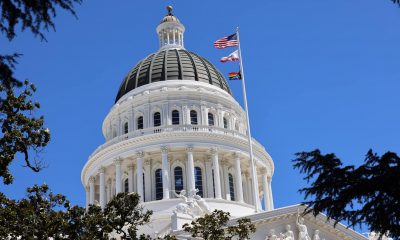
 California1 day ago
California1 day agoTwo anti-trans bills fail to advance in California
-

 Arts & Entertainment3 days ago
Arts & Entertainment3 days agoTrans Day of Visibility: Let us put you on 5 Latinx musicians you should be listening to right now
-
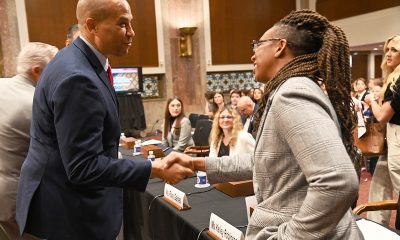
 opinions9 hours ago
opinions9 hours agoCory Booker’s missed moral moment
-

 Movies1 day ago
Movies1 day agoSexy small town secrets surface in twisty French ‘Misericordia’
-
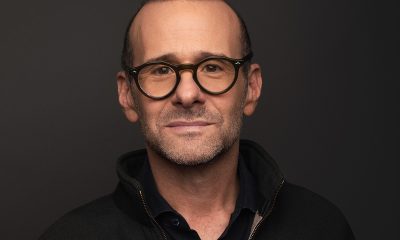
 a&e features8 hours ago
a&e features8 hours agoCreator Max Mutchnick on inspirations for ‘Mid-Century Modern’

